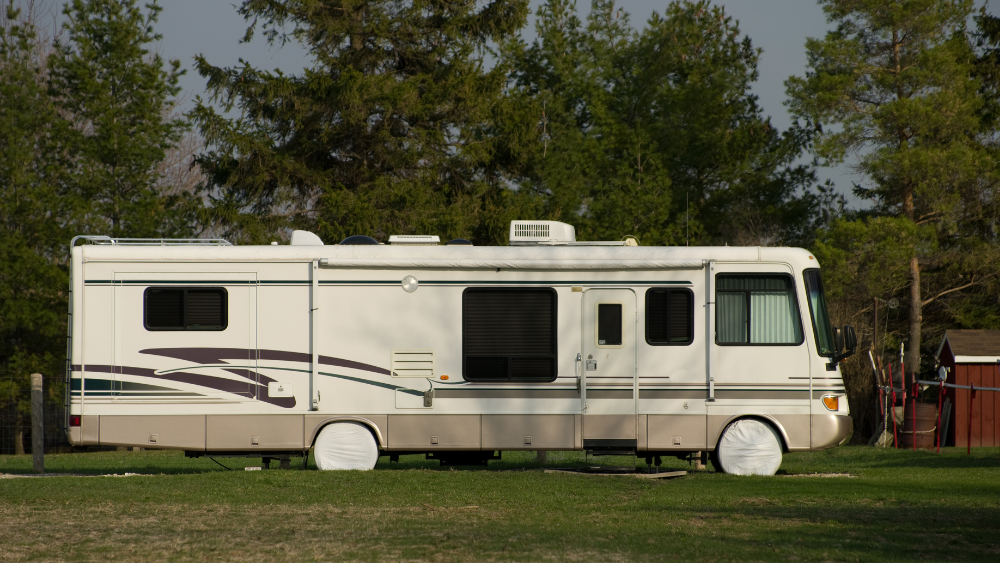As winter approaches, it’s important to give your RV the care it needs before parking it for the season. Proper steps for storing your RV for winter prevents costly repairs, keeps systems running smoothly, and ensures your rig is ready to roll when spring returns.
-
Clean and Inspect Before Storing
Start with a full exterior wash to remove road grime, bugs, and salt. Apply a protective wax or sealant to shield against moisture and UV damage. Inside, vacuum, wipe down surfaces, and empty all food and perishables to avoid odors or pest attraction.
Take a few minutes to inspect the roof, windows, and seams for cracks or worn seals—these small issues can lead to big leaks after months of rain or snow.
-
Keep Pests Out
Mice, insects, and spiders love cozy RV interiors during cold weather. Seal off entry points with foam or steel wool, especially around plumbing lines and wiring. Store fabrics like bedding and towels in sealed plastic bins. Use natural deterrents such as peppermint oil or dryer sheets, and set a few traps in storage compartments for extra peace of mind.
-
Protect the Plumbing System
If you’re storing your RV in an area where temperatures drop below freezing, winterizing your water system is a must. Drain and flush all tanks (fresh, gray, and black), then run RV antifreeze through the water lines and pump to prevent frozen or cracked pipes.
You can purchase antifreeze in our store or schedule a winterization service with our team to ensure every step is done right.
-
Care for Your Batteries
Batteries slowly discharge in storage. Disconnect them or use a trickle charger to maintain charge levels. Store batteries in a cool, dry place—never on concrete floors, which can draw out energy over time.
-
Tire and Jack Protection
Before storage, inflate your tires to the manufacturer’s recommended PSI. If possible, move your RV occasionally or use leveling blocks to prevent flat spots. Covering your tires protects them from UV rays that cause cracking and dry rot.
-
Choose the Right Cover and Location
Use a breathable RV cover that fits properly to protect from rain, snow, and debris. Avoid plastic tarps, which trap moisture and cause mildew.
If parking outdoors, choose a level surface away from trees that could drop sap or branches. For long-term storage, consider using wheel chocks and stabilizers for safety.
-
Don’t Forget the Propane System
Turn off your propane supply, close all valves, and cover your tanks if stored outside. Inspect for leaks or rust before spring use. You can also bring your cylinders into Delta RV for a refill or inspection before next season.
Final Tip: Check In Periodically
Even in storage, your RV still needs occasional attention. Visit once a month to check for leaks, pests, or tire pressure loss. A few minutes of maintenance now saves you hours later.
Ready to Winterize? We Can Help.
At Delta RV in Paso Robles, we offer complete winterization and inspection services to make sure your RV is protected through the cold months. From plumbing antifreeze to RV covers and pest prevention products, we’ve got everything you need to store your rig with confidence.
📍 Visit us at 1960 Ramada Dr. | 📞 (805) 591-4463 | 🌐 www.deltarv.biz
Sources:
Camping World – “How to Winterize and Store Your RV”
